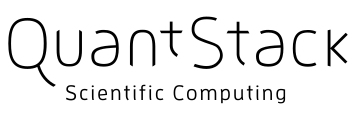

conda-forge
source link: https://conda-forge.org/
Go to the source link to view the article. You can view the picture content, updated content and better typesetting reading experience. If the link is broken, please click the button below to view the snapshot at that time.

conda-forge
A community-led collection of recipes, build infrastructure and distributions for the conda package manager.
About conda-forge
conda-forge is a GitHub organization containing repositories of conda recipes.
Thanks to some awesome continuous integration providers (AppVeyor, Azure Pipelines, CircleCI and TravisCI), each repository, also known as a feedstock, automatically builds its own recipe in a clean and repeatable way on Windows, Linux and OSX.
The built distributions are uploaded to anaconda.org/conda-forge and can be installed with conda. For example, to install a conda-forge package into an existing conda environment:
conda config --add channels conda-forge
conda config --set channel_priority strict
conda install <package-name>
Miniforge is an effort to provide Miniconda-like installers, with the added feature that conda-forge is the default channel. Unlike Miniconda, these support ARMv8 64-bit (formally known as `aarch64`).
Learn more about conda-forge by reading our docs or watching the following episode of Open Source Directions.
Contributing to conda-forge
Report an issue with a package
- Search for the appropriate feedstock repository. The list of existing feedstocks is a good place to start.
- Take a look to see if the issue has already been raised on the feedstock's issue tracker. Otherwise, create a new issue, providing appropriate information, such as your operating system, package versions and an reproducible example of the problem. Even better, if you can automate the test in the conda recipe, it might be worth submitting a PR containing the test.
- Can't find the feedstock? No worries, just raise the issue at conda-forge/conda-forge.github.io and we will make sure the right people see it.
Update a package
- Search for the appropriate feedstock repository. The list of existing feedstocks is a good place to start.
- Fork the feedstock you wish to update.
- Create a new branch from the feedstock master branch.
- Edit the recipe as desired. You may even consider adding yourself as a recipe maintainer.
- Propose the change as a pull request. Your recipe will automatically be built on Windows, Linux and OSX to test that it works, but the new distribution will not yet be available on the conda-forge channel.
- Once the recipe is ready it will be merged. The recipe will then automatically be built and uploaded to the conda-forge channel.
Add a recipe
- Fork conda-forge/staged-recipes
- Create a new branch from the staged-recipes master branch.
- Add a new conda recipe in a new "recipes/[your-package-name]" directory. There is an example of a well-written recipe in "recipes/example" you can copy. Further guidance on writing good recipes. You can also test the recipe locally.
- Propose the change as a pull request. Your recipe will automatically be built on Windows, Linux and OSX to test that it works, but the distribution will not yet be available on the conda-forge channel.
- Once the recipe is ready it will be merged and a new "feedstock" repository will automatically be created for the recipe. The build and upload processes take place in the feedstock, and once complete the package will be available on the conda-forge channel.
Conda-forge is a fiscally sponsored project of NumFOCUS, a nonprofit dedicated to supporting the open source scientific computing community. If you like conda-forge and want to support our mission, please consider making a donation to support our efforts.
Recommend
About Joyk
Aggregate valuable and interesting links.
Joyk means Joy of geeK






